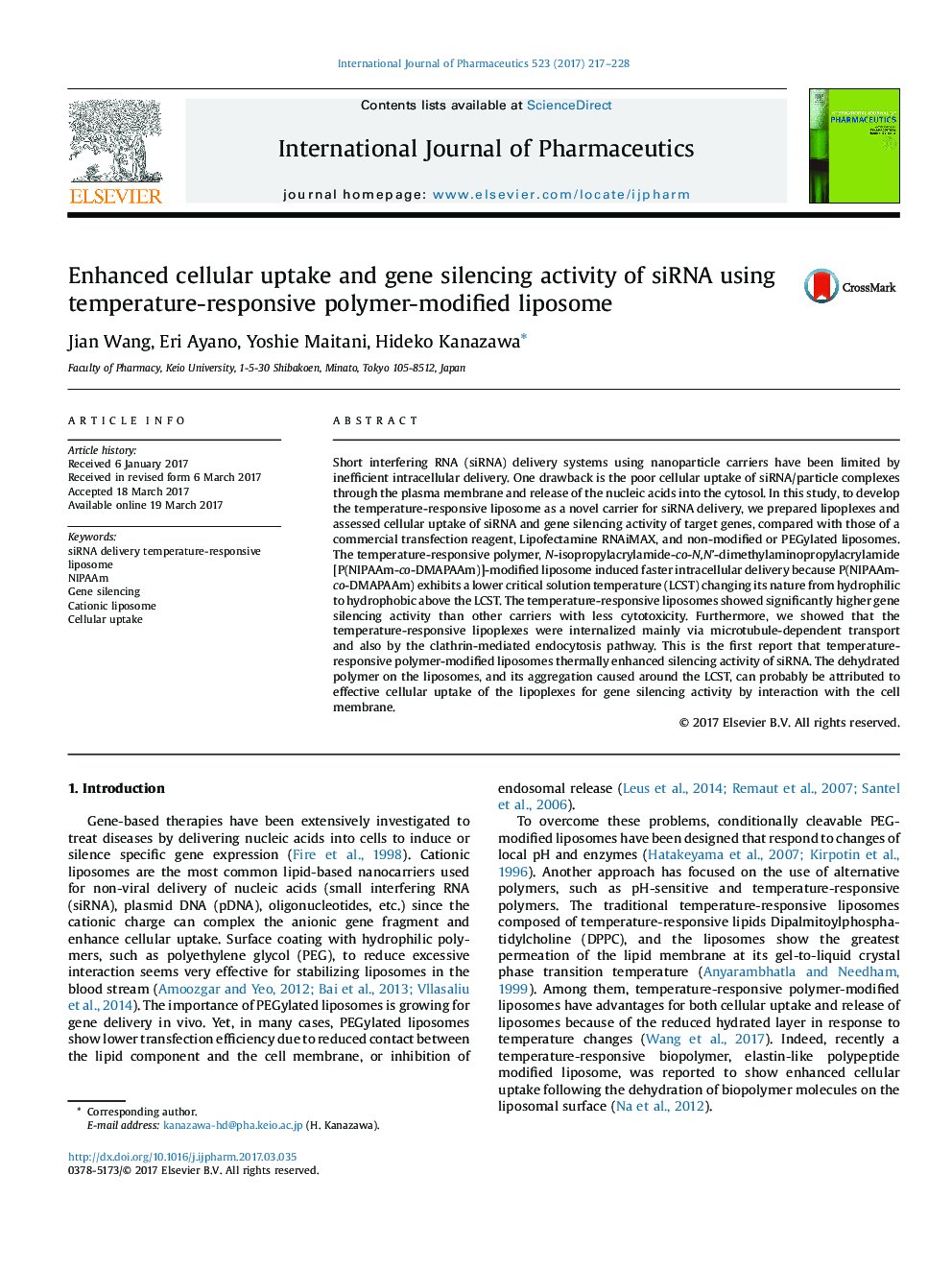| Article ID | Journal | Published Year | Pages | File Type |
|---|---|---|---|---|
| 5550538 | International Journal of Pharmaceutics | 2017 | 12 Pages |
Short interfering RNA (siRNA) delivery systems using nanoparticle carriers have been limited by inefficient intracellular delivery. One drawback is the poor cellular uptake of siRNA/particle complexes through the plasma membrane and release of the nucleic acids into the cytosol. In this study, to develop the temperature-responsive liposome as a novel carrier for siRNA delivery, we prepared lipoplexes and assessed cellular uptake of siRNA and gene silencing activity of target genes, compared with those of a commercial transfection reagent, Lipofectamine RNAiMAX, and non-modified or PEGylated liposomes. The temperature-responsive polymer, N-isopropylacrylamide-co-N,N'-dimethylaminopropylacrylamide [P(NIPAAm-co-DMAPAAm)]-modified liposome induced faster intracellular delivery because P(NIPAAm-co-DMAPAAm) exhibits a lower critical solution temperature (LCST) changing its nature from hydrophilic to hydrophobic above the LCST. The temperature-responsive liposomes showed significantly higher gene silencing activity than other carriers with less cytotoxicity. Furthermore, we showed that the temperature-responsive lipoplexes were internalized mainly via microtubule-dependent transport and also by the clathrin-mediated endocytosis pathway. This is the first report that temperature-responsive polymer-modified liposomes thermally enhanced silencing activity of siRNA. The dehydrated polymer on the liposomes, and its aggregation caused around the LCST, can probably be attributed to effective cellular uptake of the lipoplexes for gene silencing activity by interaction with the cell membrane.
Graphical abstractDownload high-res image (109KB)Download full-size image
